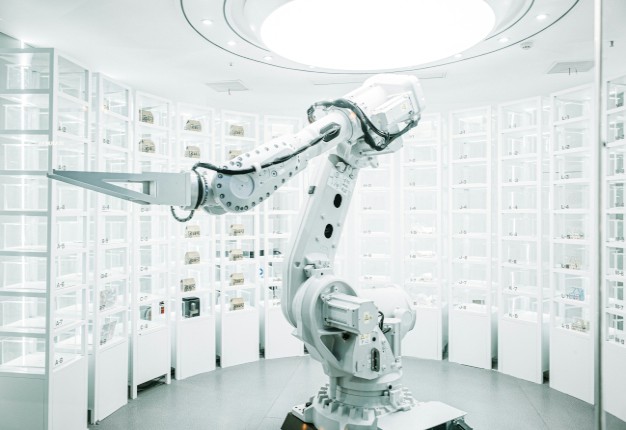
The Impact of Artificial Intelligence on Healthcare in the UK
Introduction
Artificial Intelligence (AI) is revolutionizing various industries, and healthcare is no exception. In the UK, AI technologies are increasingly being integrated into medical practice, offering promising advancements in diagnosis, treatment, and patient care. This article explores how AI is transforming healthcare in the UK, its benefits, challenges, and future prospects.
How AI is Transforming Healthcare
1. Enhanced Diagnostics
AI-powered tools are significantly improving diagnostic accuracy. Machine learning algorithms can analyze medical images, such as X-rays and MRIs, with high precision, aiding in the early detection of conditions like cancer and cardiovascular diseases. For example, AI systems can identify abnormalities that may be missed by the human eye, leading to earlier and more accurate diagnoses.
2. Personalized Treatment Plans
AI is enabling more personalized treatment plans by analyzing vast amounts of patient data. Algorithms can predict how individual patients will respond to specific treatments based on their medical history and genetic information. This tailored approach helps in developing more effective treatment strategies and improving patient outcomes.
3. Streamlined Administrative Processes
AI is also streamlining administrative tasks in healthcare settings. Automated systems can handle scheduling, billing, and patient record management, reducing the administrative burden on healthcare professionals. This efficiency frees up time for clinicians to focus more on patient care and less on paperwork.
4. Predictive Analytics
Predictive analytics powered by AI can forecast patient outcomes and identify potential health risks before they become critical. By analyzing trends and patterns in patient data, AI can alert healthcare providers to potential issues, allowing for preventive measures and timely interventions.
5. Virtual Health Assistants
AI-driven virtual health assistants and chatbots are improving patient engagement and support. These tools can answer patient queries, provide medical information, and offer reminders for medication and follow-up appointments. Virtual assistants help bridge the gap between patients and healthcare providers, enhancing access to care.
Challenges and Considerations
1. Data Privacy and Security
One of the primary concerns with AI in healthcare is data privacy and security. Handling sensitive patient information requires stringent measures to protect against data breaches and unauthorized access. Ensuring compliance with data protection regulations, such as GDPR, is essential for maintaining patient trust.
2. Integration with Existing Systems
Integrating AI technologies into existing healthcare systems can be complex. Compatibility issues and the need for seamless data exchange between AI tools and traditional systems can pose challenges. Effective implementation requires careful planning and coordination among healthcare providers and technology developers.
3. Ethical and Bias Considerations
AI systems can inherit biases from the data they are trained on, potentially leading to disparities in healthcare outcomes. Addressing ethical concerns and ensuring that AI algorithms are developed and tested to minimize bias is crucial for equitable healthcare delivery.
4. Training and Adoption
Healthcare professionals need training to effectively use AI tools and interpret their outputs. Ensuring that clinicians are comfortable with AI technologies and understand their limitations is essential for successful adoption and integration into clinical practice.
Future Prospects of AI in Healthcare
1. Advancements in AI Technologies
Ongoing advancements in AI technologies promise even greater improvements in healthcare. Innovations such as advanced natural language processing, more sophisticated machine learning models, and enhanced data analytics will continue to drive progress and enhance patient care.
2. Collaboration Between AI and Human Expertise
The future of AI in healthcare will likely involve a collaborative approach, where AI complements and augments human expertise rather than replacing it. Combining the strengths of AI with the insights and empathy of healthcare professionals will create a more effective and compassionate healthcare system.
3. Expanding Access to Care
AI has the potential to expand access to healthcare services, particularly in underserved areas. Remote diagnostics and telemedicine powered by AI can provide high-quality care to patients who might otherwise face barriers to access, contributing to more equitable healthcare delivery.
Conclusion
AI is transforming healthcare in the UK by enhancing diagnostics, personalizing treatment, streamlining administrative processes, and improving patient engagement. While challenges such as data privacy, integration, and ethical considerations remain, the potential benefits of AI in healthcare are significant. As technology continues to evolve, AI will play an increasingly important role in shaping the future of healthcare, offering new opportunities for improved patient outcomes and more efficient care.

